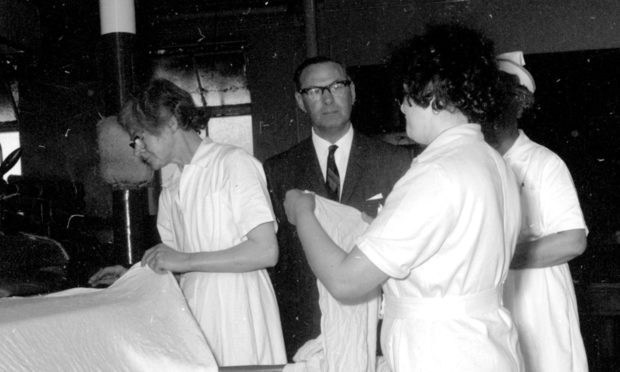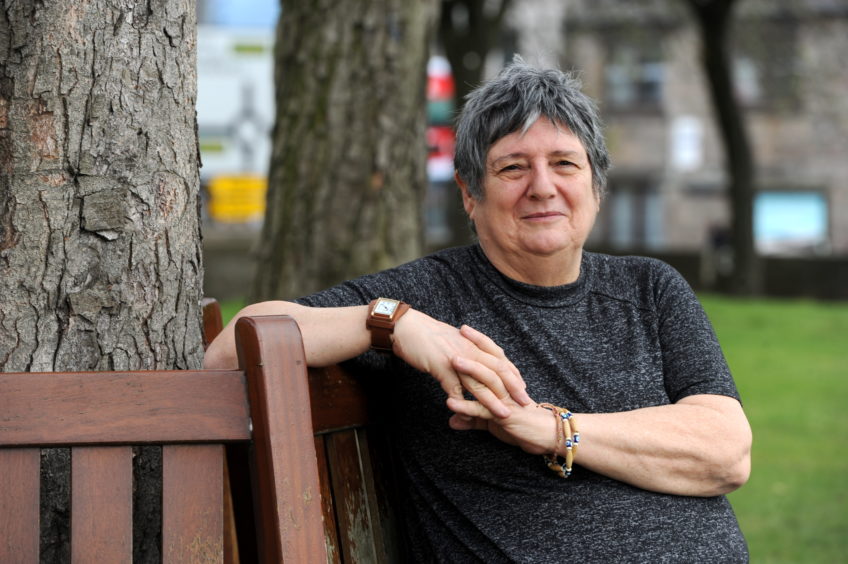She has long been acclaimed one of the treasured figures in the north-east and been crowned the Queen of Doric.
But life hasn’t always gone smoothly for Aberdeen author, Sheena Blackhall, who spent months in hospital with typhoid during the notorious outbreak in the city more than half a century ago.
The memories of an experience she described as a “nightmare” have grown more vivid for Mrs Blackhall in recent days with the imposition of a national lockdown.
And, even as she self-isolates, the 72-year-old cultural icon believes the Covid-19 pandemic represents a threat on a much bigger scale than what she previously endured.
In 1964, as a result of single can of corned beef being contaminated with the harmful bacteria, many patients spent months in hospital, whilst small businesses collapsed around the city.
People remained either confined to their homes or within the hospital.
Sheena Blackhall on her typhoid experience: ‘I was delusional’
Describing her experience, Mrs Blackhall said: “I had an extreme headache and fever; it got to such a point that I was delusional.
“Our nearest doctor, had been in a Japanese prisoner of war camp and had treated typhoid. He knew, as soon as I came in, without having to test, that I had typhoid because, by the time the ambulance came, I actually thought the medical staff were giant seagulls because of the flapping white coats.”
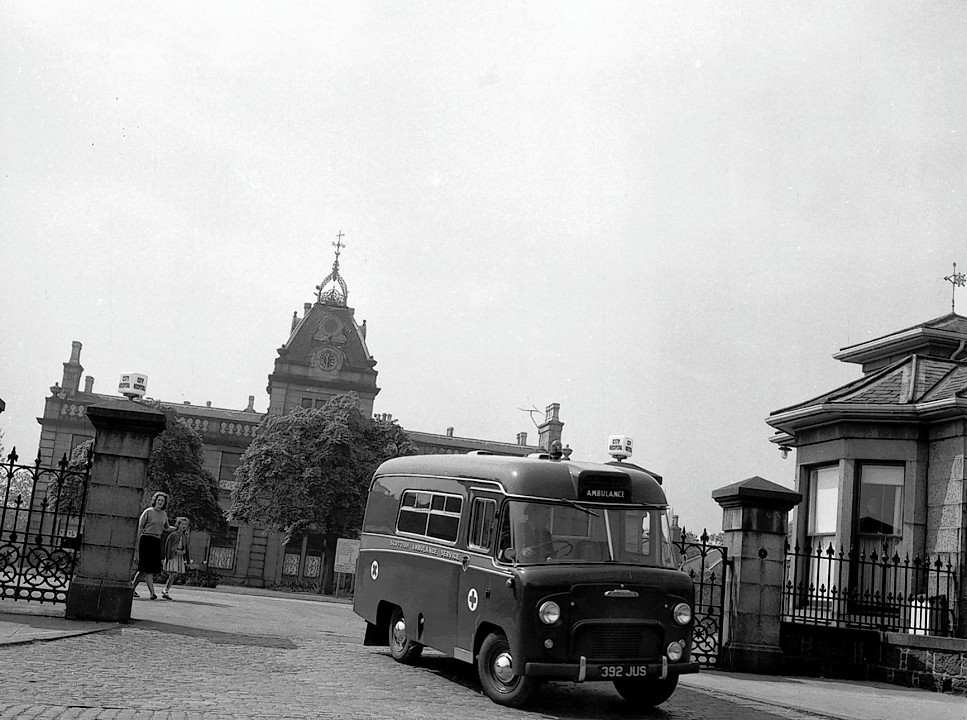
After being rushed to the city hospital and treated with an injection, she woke up in a makeshift fever unit.
She added: “The big thing was the quarantine, families were split up there was it was a nightmare it wasn’t a very fine time.”
People hid in their homes to avoid the debilitating condition and supplies to anybody affected were often regarded with extreme suspicion.
Queen of Doric sees comparisons between typhoid to Coronavirus
Ms Blackhall added: “Milk was left at the bottom step, because folk were too frightened to bring it up to the front door. It was quite a scary time for everybody.
“There was only one death that I knew of and that was an old woman in the next bed to me, but she had underlying health problems, which is the same with the coronavirus.”
Comparisons between the 1964 outbreak and the globe’s ongoing battle with Covid-19 have become increasingly apparent as the country adapts to a prolonged lockdown.
Residents of the Granite City were forced to cancel holidays, whilst politicians in Westminster brought the crisis to the world’s attention.
Common sense kind of goes out the window in these situations
Mrs Blackhall spoke about the quarantine and the dangers of ignoring government advice, and said: “It puts a tremendous strain on people.
“One of them was a minister’s daughter. We were being treated with massive doses of penicillin, antibiotic penicillin.
“Whilst some of us were taking a placebo, she had a massive reaction against the drugs.
“Folk came from London to see what had happened to her, she couldn’t stand, she had blankets over her and they put a cage over the top of the bed.
“People were suited up on the ward like you see on the TV now with the coronavirus.
“As for the nurses, I have to take my hat off to them, they just carried on and, though it must have been quite scary, they did a grand job.
“Obviously, we didn’t get visitors, so folk just stood outside in the rain if they wanted to visit and would just look in through the windows.”
After visiting a friend on another ward, the teenager was caught by medical staff and punished for violating the rules of the quarantine.
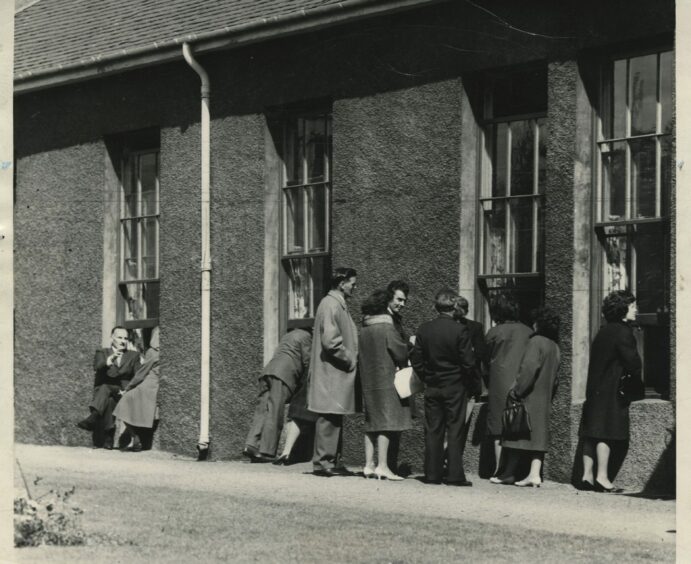
She said: “They clamped down on that, which was my fault, of course, then I was sent to Coventry for a spell.
“But the doctor explained to my father they would turn on somebody else in a wee while, because of the stress they were under.
“He was right. Somebody was seen going to the toilet and not washing their hands and they were turned in next and sent to Coventry. Common sense kind of goes out the window in these situations, folk panic and that’s all there is to it.”
‘Back then it was sheer panic’
The daily routines of the people who lived within the city wasn’t the only thing affected during the epidemic.
Just as the current UK wide lockdown has immeasurably changed the lives of people up and down the country, with people forced to work from home, and others left to deal with the virus on the front line, the Aberdeen outbreak posed many challenges.
Mrs Blackhall added: “I’m 72, and I’m diabetic and I still teach, which I’m obviously not doing at the moment.
“But I wouldn’t want to bring any infection to the children, I was in hospital recently with something completely unrelated, but already they were quite keen to turn people around as quickly as possible.
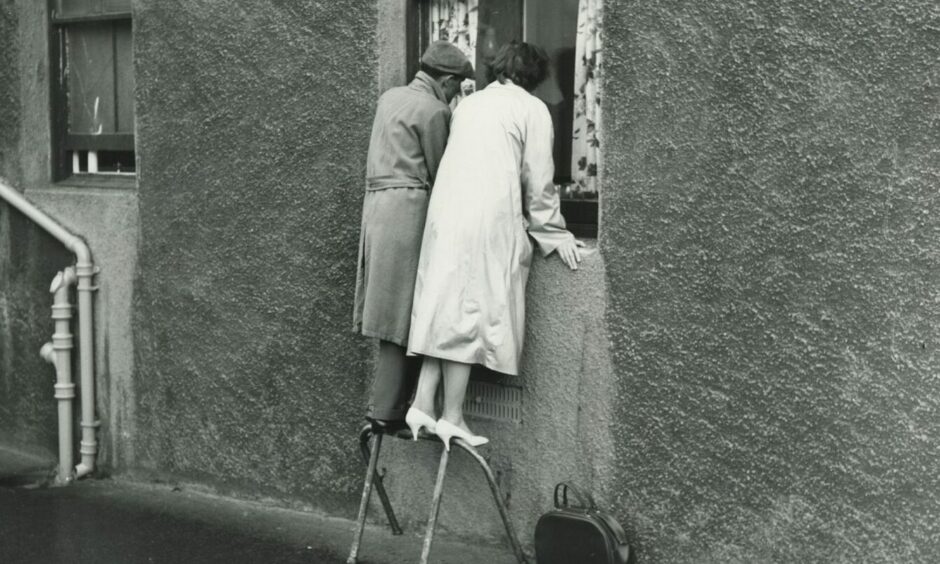
“It’s not the safest place to be in the midst of a pandemic, because of the sheer volume of people that are going to need the hospital.”
She is convinced that even after the conclusion of the current outbreak, life won’t just revert back to the status quo and may look very different in the future.
She said: “It is very difficult, all the schools are now shut. When I got it, I was in secondary school, I was doing higher art and they burned all the portfolios.
“All the work, all the books they were burned. Back then it was sheer panic.
“But now they will be relying on IT, so that appears to be the way forward.
“In fact, it might change a lot of how education is delivered after that and people are going to rely a lot more on it.”
Aberdeen’s high street was forever changed after typhoid outbreak
The Coronavirus is not the first health crisis the north-east has had to brave, nor will it be the first time businesses have fallen as casualties during a pandemic.
In 1964, Aberdeen’s high street was forever changed after Typhoid struck.
Something the UK Government has pledged to prevent happening again, as people up and down the country are confined to their homes amidst the battle against Covid-19.
During the typhoid outbreak, author Sheena Blackhall watched her own family’s business close permanently as a result.
She said: “My dad was a manager of a Deeside bus service, once word got out that I had the typhoid, folk cancelled their buses and their trips here.
“They also did a lot of tourist work in Deeside as well as the main drag of transport between Aberdeen to Braemar, so folk were reluctant to get the buses because I had the disease and that was the final nail in the coffin.
“That finished the business they closed up about a year after; a lot of other wee businesses went to the wall.”
Local businesses across the nation are worrying that history could repeat itself even with Government intervention.
Rishi Sunak announced that grants, loans and the payment of 80% of workers wages would be made by the UK Government to businesses across the country.
The move is hoped to ease the mounting pressures on businesses large and small in the wake of the Coronavirus.
With Ms Blackhall adding: “I wouldn’t like to see it replicated in a town again, just for the fact that so many small businesses go to the wall.”
